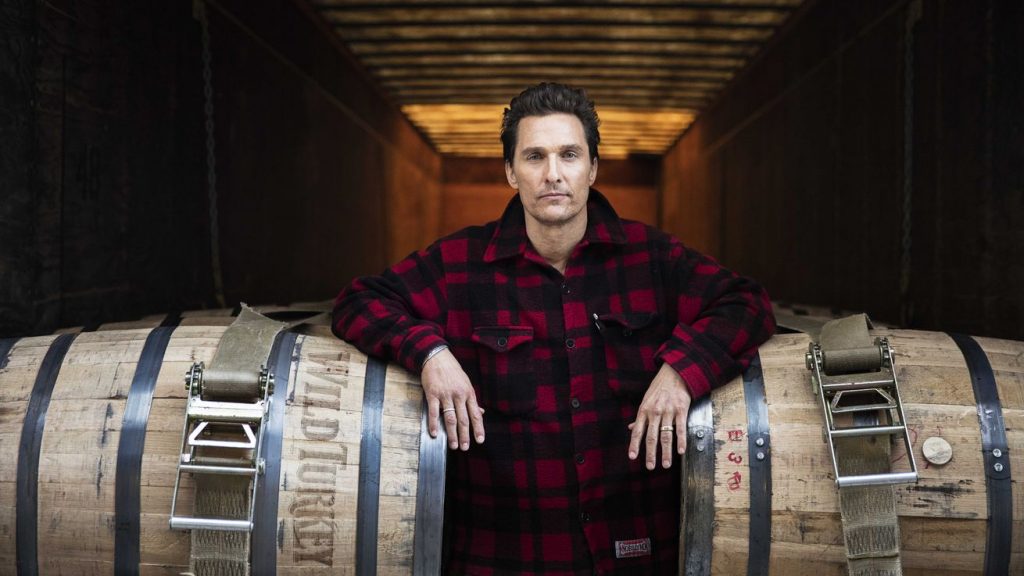The Wrong Way to Sell Your Story

“They can smell it.”
“Millennials — and I know this for a fact — can smell solicitation. And it’s a turnoff. The best ads are not solicitous,” says Matthew McConaughey in an interview with The New York Times.
It was announced yesterday that Oscar-winning actor Matthew McConaughey is the new ‘Creative Director’ for Wild Turkey bourbon.
McConaughey will not just appear on camera, says NYT, he will write and direct the ads, too.
McConaughey says, “The brand is a little dusty, and in some ways I’m shaping a full-on reintroduction. The great news is that Wild Turkey hasn’t changed in all these years — it’s totally authentic. And that appeals to millennials. Because they can smell fake. Some manicured, bearded hipster soliciting them? No, thanks.”
According to a Boston Consulting Group report titled “How Millennials Are Changing the Face of Marketing Forever,” they don’t respond to the same tactics that separated their parents and grandparents from their money, says Bloomberg. “They desire ‘personality’ in their products. They have less trust in ‘experts.’ Marketing and product releases can’t look, feel, or smell like they have in the past.”
If millennials want personality, what better personality to offer them than the cool, southern-speaking Matthew McConaughey.
McConaughey and Wild Turkey have already published a short documentary promoting the company’s reintroduction.
The doc starts off with a Friday-Night-Lights-esque scene and ends with McConaughey looking at the camera and saying, “As Jimmy says, ‘Hey, if this doesn’t work, we’re going to be stuck with a whole hell of a lot of bourbon… and, uh, there’s worse things to be stuck with.”
What McConaughey emphasizes most throughout the short doc is that he found a story.
“I found a story here in Kentucky…
“I found a story here in the Russells…
“I found a story here in Wild Turkey that I think deserves to be told…
“I find it entertaining… I find it inspiring…”
McConaughey’s priming viewers for the origin story of the 161-year-old bourbon brand.
This seems to be the preferred choice for advertisers these days. StorySelling is what ad agencies believe is what connects best with millennial consumers.
I like this approach a lot, but I’m cautiously optimistic.
Stories have staying power; they engage us on deep emotional levels and there’s a lot of proof that stories can sell. But a poorly told story can do the opposite.
I like the advice Andy Raskin shares in his article on Medium about how brands can quickly build trust by telling their origin story. What I would add is a brand should only tell its origin story if it’s interesting. If it “deserves to be told,” as McConaughey says.
Because a boring origin story will not build trust; it will crush any hopes of further connecting with your customers.
This is the danger I see with this trend in sharing your origin story. I think brands will assume that any origin story is good enough to connect with millennials so long as it’s authentic.
If every brand trying to appeal to millennials starts telling their origin story, it will not only kill the novelty (how many ways can you start a bourbon company?), it will also feel like most brands are forcing it.
There’s a reason you listen to your grandparents when they tell you stories. Your grandparents have lived, they’ve experienced life, and they have real stories to share.
Young brands and startups feeling the pressure to share their origin story would be better off directing their efforts toward telling other compelling stories that connect with their audience on different levels.
Tell stories that show your prospects how their life will change after using one of your products. Show the feelings they will get when they use your product.
You can even follow the same steps you would if you were telling your origin story.
Raskin says there are 5 essential elements to a good origin story:
1. Once upon a time…
How was your life before the life-changing event?
2. “Then one day…”
Next, describe your life-changing event.
3. “Because of that…”
What relevant events were then set in motion?
4. “Until finally…”
What was the turning point — the moment when you really committed to the new path?
5. “So now…”
Finally, describe what you do now, and connect it to the story.
Within these five elements, tell many stories.
Older brands have an advantage when telling their origin story because they’ve been around the block.
I’m not convinced yet that young brands will benefit from sharing their origin story.
Right now, I believe it works because not many brands are doing it. But as brands catch on, I think the most compelling stories will be the most historic.
For example, Coco Chanel ran a series of origin-story campaigns a few years ago. I’m not Chanel’s target demographic but I can see why these videos connected with women — being able to see parts of themselves in Coco’s journey. This is great origin storytelling.
I doubt this strategy would be as effective for a young brand. Younger brands are better off mastering how to tell stories that sell their products rather than tell their story.
Bottom line: You have to earn the right to sell your story.
Nick Papple
Managing Editor
Success Formula Daily
Get your own copy of Success Formula Daily sent straight to your inbox every weekday. Click here.
Check out what you missed in the last issue here.